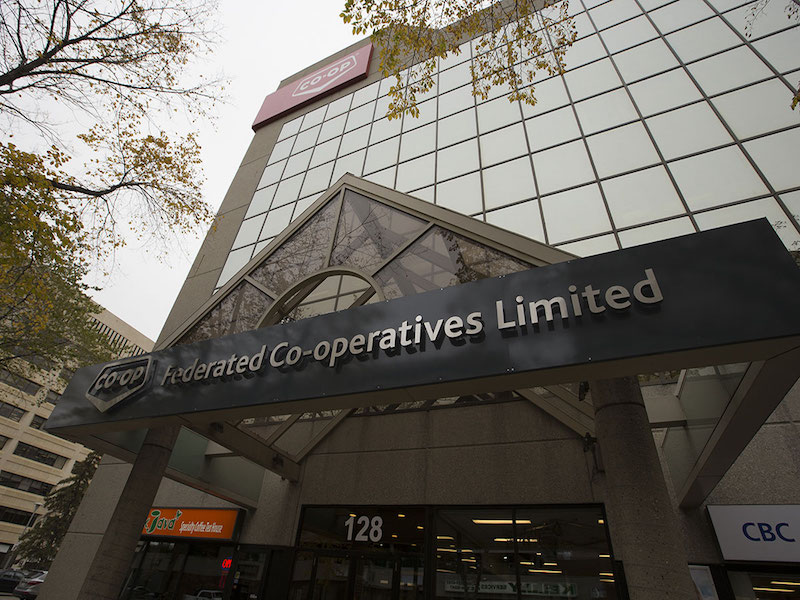
The leader of the Saskatchewan New Democratic Party is calling on the provincial government to implement binding arbitration to end the months-long lockout and pension dispute between Federated Co-operatives Ltd. and its refinery workers.
“This lockout has gone on far too long. The premier needs to show leadership and bring it to an end,” said Ryan Meili, provincial NDP leader, in a press release last week. “When the Saskatchewan party appointed special mediator Vince Ready months ago, they seemed confident that he would come to a resolution. Instead, the impasse drags on because the premier won’t act, which is bad for the province, bad for workers and bad for our economy.”
Read: Unifor decries Co-op’s ‘final offer’ on pension, files unfair labour practices complaint
On May 20, Unifor revealed it hadn’t been informed by the Regina Police Service of an anonymous bomb threat made in February against its picket line outside of the Co-op Refinery. The union learned about the threat as part of a freedom of information request. Michael Fougere, Regina’s mayor, received the threat — made against picketers and select Unifor leaders including union president Jerry Dias — and forwarded it to Regina police, but the union was never notified.
“They threatened myself and my family, others and their families, but we don’t have the right to know?” says Dias. “The only reason is they thought it would damage the refinery if it got out.”
According to Dias, the union is looking to expand its existing complaint against the Regina police.
Members of Unifor Local 594 have been protesting the Co-op’s proposed pension changes for months and were locked out in December. Historically, the defined benefit plan was fully funded by the Co-op, but the company said it wanted employees to begin paying 11 per cent of total contributions. It also wanted to reduce the benefit multiplier from two to 1.75 per cent and cut the indexing maximum for retirees from five to three per cent.
In late March, Unifor accepted the recommendations of province-appointed mediator Vince Ready, which would have seen employees in the DB plan contribute up to eight per cent to the pension by February 2022. In addition, they said the accrual rate should be maintained at two per cent of final average earnings with no Canada Pension Plan-related reduction applied at age 65 — as presently exists in the DB plan — and that there should be no indexation on service after June 30, 2020. They also recommended that the consumer price index be capped at a maximum of two per cent for pre-July 1, 2020 service.
Read: Unifor accepts mediator’s recommendations around Co-op pension changes
The Co-op rejected the mediator’s recommendations and tabled what it called its “final offer” on March 29. In a press release, Unifor Local 594 said the changes are a significant cut to the company’s pension responsibilities, going beyond what the mediators proposed in their March 19 report.
The organization’s new proposal would see employees in the DB plan contributing eight per cent by February 2021, one year earlier than suggested, and for employees to share current services costs 50-50 by February 2022, which Unifor said would mean employees would contribute 11.7 per cent to the plan.
The Co-op also proposed bringing back the 50 per cent CPP reduction at age 65, as well as reducing its contributions to the company savings plan by 2.5 per cent, to four per cent, for existing employees and closing the plan to any new hires. Those hires would instead be in the Co-op’s performance plan, which isn’t part of the collective bargaining agreement.
Read: Unifor blockade continues at Co-op refinery after pension talks break down
Bargaining has stalled since the union rejected the Co-op’s latest offer, says Dias. “We’re still at an impasse.”
The union is trying to determine whether the Co-op has applied for the Canada Emergency Wage Subsidy to cover the pay for its replacement refinery workers, he adds. Unifor has previously called on the federal government to close a loophole in the CEWS rules that allow employers using so-called scab labour to still qualify for the subsidy.
“We cannot have a situation where you have an employer that locks out 730 families . . . applying for the wage subsidy. They ought not to be eligible for a wage subsidy.”
The Co-op didn’t respond to Benefits Canada‘s request for comment.
Read: Co-op Refinery employees locked out over protracted pension dispute
